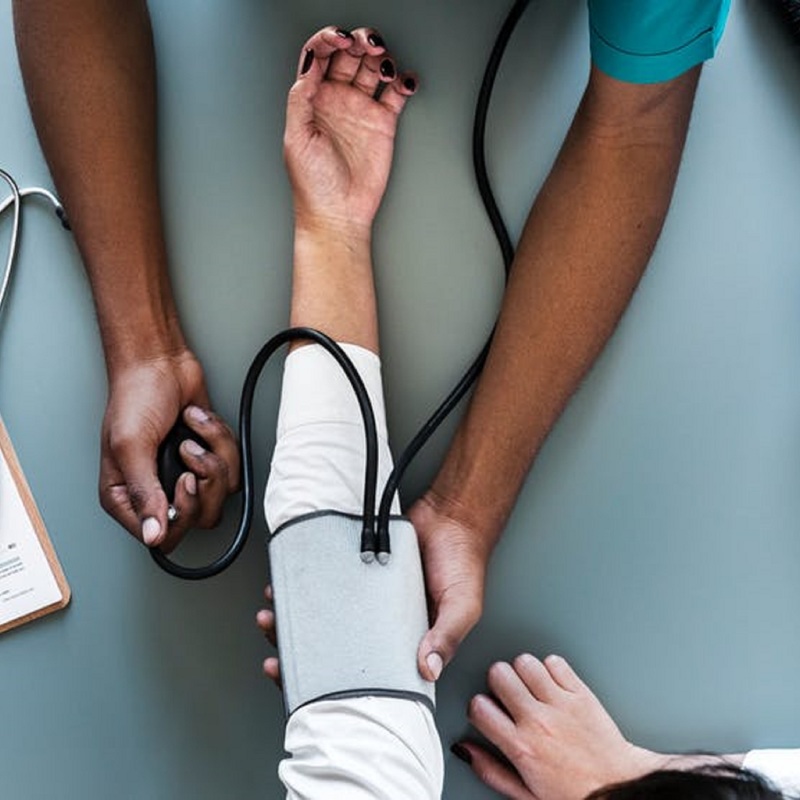Search
Mister - The Missing Republic and National Integration in Nigeria
DOI: 10.17160/josha.5.7.461
The paper identifies the relevance of party system in the third republic to national integration in a multi-ethnic Nigerian state and also, it identifies the implications of the transition (annulment) on the fourth republic. The study made use of secondary source of data in achieving its objectives. The study reveals that in a multi-ethnic state, like Nigeria, where ethnic group maintained geographical location and a distinct culture, language and quest for power (cultural, political, economic, etc.), political parties should be left to operate on democratic principle. The study further revealed that the annulment of the transition election and the consequent crises reveals the significance of ethnic identities to the issues of national integration in Nigeria. The paper concludes that democracy can be used to quench the fire of ethnic sentiment in Nigeria if the rules are obeyed and kept.
DEMETRIOS - PRIZE 2018. The Winners.
DOI: 10.17160/josha.5.7.460
The JOSHA Team is very pleased to share with you the names of the Winners of the Demetrios Prize 2018. For the categories BACHELOR and MASTER thesis the International Academy of Science, Humanities, and Arts (IASHA e.V.) supported by the Biothera Foundation has selected 4 theses in different categories and awarded a prize of € 500 each. Our editors have chosen 3 Bachelor Theses and one Master Thesis in the Fields of medicine, theology, Islamic studies, and arts. Thanks to all the participants for their exciting research!
Editorial of Volume 5, Issue 6
DOI: 10.17160/josha.5.6.458
Since the end of July until the end of August 2018, our readers have been seeing and reading many interesting articles with very different topics. Now we are closing the 6th issue of 2018 after having shared with you more than 10 articles from Countries of all over the world like Venezuela, France, Kosovo, Germany, Italy, Nigeria, Argentina, and Palestine. We also like to remind our readers of our social media accounts in Facebook and now also on Instagram, where you´ll get the information about the articles we´ll be publishing in the journal.
JOSHA`s Critical Review of: “Systematic reanalysis of clinical exome data yields additional diagnoses: implications for providers”: IS THERE A NEED FOR “RECALL” IN CLINICAL MEDICINE?
DOI: 10.17160/josha.5.6.457
In this study, the importance of new information generated after the initial diagnostic genome analysis was performed is strikingly demonstrated by the fact that new information was of relevance in 10% of the patients in this analysis. While this study focusses on clinical exome analysis, the implications go far beyond this study and potentially apply to all diagnostic and therapeutic procedures performed.
Informing patients of relevant health information and innovations: patient recall or annual physical?
DOI: 10.17160/josha.5.6.455
Recently the NEJM published an interesting debate on the value of the annual physical (also known as “periodic health examination”) (Goroll 2015). “Today, because of the rapid growth of medical knowledge and the widening application of technology to medicine, there is a particular need for a continuing authoritative review of, standards for both preventive and therapeutic strategies. Some of these strategies are subsumed under the general category of the periodic health examination.” (Canadian Task Force on the Periodic Health Examination 1979). Although the current debate of the annual physical has narrowly focused on preventive strategies in healthy individuals and building patient-physicians relationship, recent breakthrough clinical innovation in many fields, especially in genomic medicine, widens the need of review to new effective therapy and diagnostics.
Nallê Art: Notes on Some Aspects of Henna Application among the Kanuri People of Borno
DOI: 10.17160/josha.5.6.447
The culture of the Kanuri is predominately interesting and attractive. The Kanuri people are very obsessed with their culture which help the quality of cultural traits and vibes high. In Kanuri Culture just as in other ethnic groups throughout the world there are norms and values. Even though most of their culture finds its origin in the Islamic religion, yet they have a couple of traditions that are peculiar to the tribe. One of such traditions is the application of henna, which is not well documented by the social historians and anthropologists. It is based on this assertion that this paper makes attempt to examine the application and importance of Henna among Kanuri people. Henna or “nallê” as the Kanuri call it, is a safe and temporary body art practice for millennia among the Kanuri. The technique employs a paste made from ground leaves of the henna plant (the grand leaves may be mixed with any amount of liquids or oils to create a paste) on the body or skin properly.
Editorial Volume 5 Issue 5
DOI: 10.17160/josha.5.5.442
With this Editorial, we are closing the 5th issue of 2018. We bring you 10 articles from Countries of all over the world like Venezuela, Kosovo, Norway, Germany, and Argentina. With our first Critical Reviews with a focus on clinically relevant topics, we would like to invite our readers to comment so we can all benefit. We also like to remind our reader of our Demetrios Prize 2018. The manuscripts of the winners will soon be published in the Journal after our award committee has made its selection.
Visual Organization of Industrial Functional Compositions
DOI: 10.17160/josha.5.5.437
Historically, Kosovo's industry has gone through various stages of its development and fully dependent on the economic system. In general, Kosovo's industrial development was based on the exploitation of raw materials and their processing to a certain degree, but not to a satisfactory degree of processing and finalization. The diversity of industrial building design must always be in line with the requirements of technological processes, economic development, environmental protection and sustainable social development. The study presented in this paper investigated the visual organization of industrial functional compositions, focussing on urban design issues, principles according to the Gestalt laws of grouping, and sustainable urban design.
JOSHA`s CRITICAL REVIEW OF „Pembrolizumab plus Chemotherapy in Metastatic Non–Small-Cell Lung Cancer”
DOI: 10.17160/josha.5.5.436
A striking benefit in overall survival was observed, and a less striking benefit in progression-free survival. This is quite in contrast to other recent studies with checkpoint inhibitors demonstrating a significant event-free survival benefit but did not demonstrate an overall survival benefit – as yet. Perhaps disease control without added toxicity is a better strategy than trying to eradicate the last cancer cells with added treatment toxicity? The innovative therapeutic strategies based on concepts of clonal evolution proposed by Cassandra Willyard (Cancer: An evolving threat, Nature 532, 166, 2016) could be of relevance here. Also, the role of type and duration of maintenance therapy should be studied further. JOSHA’S Critical Reviews in Oncology and related areas of medicine and science will focus on recently published clinical and non-clinical studies and discoveries.
New Urban Agenda – How far -by the spatial planning legislation in Kosovo and Albania?
DOI: 10.17160/josha.5.5.435
ABSTRACT Sustainable Urban Development in Kosovo and Albania is subject to this research paper. Analyzes of spatial planning documents and legislation of Kosova and Albania, toward approaching New Urban Agenda, as benchmarking to sustainable development, its strategic objectives, priorities, modalities is of importance. Kosovo and Albanian cities are facing rapid urbanization due to several developmental and transitional reasons, migration, economic development challenges, initially regulated by spatial planning legislation followed by spatial planning documents. Global trends says that one third of the global population will live in cities by 2050 (UN, 2014), in Albania over two third of population will live in cities after 2035 (UN, World Urbanization Prospects, 2009 Revision). Key words: Sustainable Urban Development, Sustainable Development Goals, Inclusive Human Settlements, Resilient Cities


.jpg?1535224499)



.jpg?1531558398)


